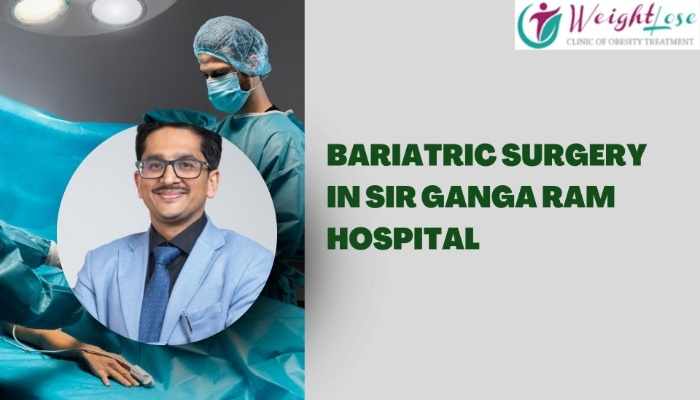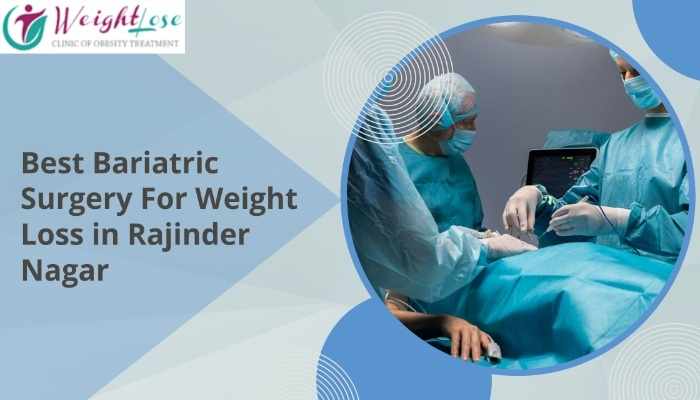
Bariatric surgery has emerged as a life-changing medical procedure for individuals struggling with severe obesity and its associated health complications. Among the leading institutions offering this advanced surgical treatment in India, Sir Ganga Ram Hospital in New Delhi stands out due to its exceptional patient care, cutting-edge technology, and highly experienced surgical teams.
When discussing the best bariatric surgery at Sir Ganga Ram Hospital, one name that consistently commands trust and recognition is Dr. Tarun Mittal, a renowned bariatric, laparoscopic, and minimally invasive surgeon known for his exceptional clinical skills and dedication to patients.
Is Bariatric Surgery Reversible?
Some bariatric procedures are reversible, but others are permanent. Not all weight-loss surgeries can be undone. Reversibility depends entirely on the type of procedure performed.
Reversible Bariatric Procedures
2. Adjustable Gastric Banding
The band can be removed anytime.
The stomach returns to its original shape.
Reversal is relatively simple compared to other procedures.
3. Gastric Bypass
It requires complex surgery to restore normal anatomy.
Reversal is risky and performed only when severe complications occur.
Not commonly recommended due to high difficulty.
4. Mini Gastric Bypass
It can be converted into a Roux-en-Y gastric bypass if needed.
Full reversal is possible but complicated.
Requires experienced surgeons due to anatomical changes.
Permanent (Non-Reversible) Bariatric Procedures
5. Sleeve Gastrectomy
About 70–80% of the stomach is permanently removed.
The resected portion cannot be replaced or restored.
6. Other sleeve-based or restrictive surgeries
Once stomach tissue is removed, reversal is not possible.
How Long Do I Need to Take Off Work After Bariatric Surgery?
Recovery time after bariatric surgery varies by procedure and by individual healing speed, job type, and surgeon instructions. Below are general guidelines—but your surgeon’s plan should always come first.
1. Typical Recovery Time
Most patients can return to work within 1–2 weeks after surgery.
Recovery time may vary depending on the type of bariatric procedure performed.
2. Nature of Your Job Matters
Desk jobs/office work: Return in 7–10 days.
Light physical work: Usually 2 weeks.
Heavy physical labor: May require 3–4 weeks or as advised by your doctor.
3. Type of Bariatric Surgery
Sleeve Gastrectomy: Return in 1–2 weeks.
Gastric Bypass: Usually 2 weeks.
Mini Gastric Bypass: Around 1–2 weeks.
Revisional surgeries: May need 3 weeks or more, depending on complexity.
4. Post-Surgery Restrictions
Lifting more than 5–10 kg is usually restricted for a few weeks.
Jobs that involve physical strain may need extended leave.
5. Work From Home Option
Many patients resume work-from-home tasks within 5–7 days if comfortable.
Light tasks like emails and online meetings can be started earlier.
Types of Bariatric Surgery Performed by Dr. Tarun Mittal
1. Laparoscopic Sleeve Gastrectomy (LSG)
Removes about 70–80% of the stomach
Reduces hunger hormone (ghrelin)
Helps patients feel full quickly
One of the most commonly performed and effective procedures
2. Roux-en-Y Gastric Bypass (RYGB)
Creates a small stomach pouch
Reroutes part of the small intestine
Reduces both food intake and calorie absorption
Excellent for patients with severe obesity and diabetes
3. Mini Gastric Bypass (MGB) / One Anastomosis Gastric Bypass (OAGB)
Similar to gastric bypass, but with a simpler, single connection
Shorter surgical time
Effective weight-loss and metabolic outcomes
Useful for patients with severe diabetes or reflux
4. Adjustable Gastric Banding
A silicone band is placed around the upper stomach
Restricts food intake
Adjustable and reversible
Best for selected patients preferring a less invasive option
5. Revisional Bariatric Surgery
Performed when a previous bariatric surgery has failed or caused complications
Includes conversion from one bariatric procedure to another
Helps with weight regain, inadequate weight loss, or anatomical issues
6. Metabolic Surgery
Primarily for patients with uncontrolled type 2 diabetes
Improves insulin sensitivity
Can be performed even for patients with lower BMI (as per guidelines)
7. Laparoscopic/Robotic Bariatric Surgery
Minimally invasive approach
Small incisions, less pain, faster recovery
Enhanced precision using advanced technology
Conclusion
Bariatric Surgery in Sir Ganga Ram Hospital offers hope, transformation, and a new beginning for individuals battling severe obesity. With its advanced medical infrastructure, multidisciplinary approach, and highly skilled surgeons, including Dr. Tarun Mittal, the hospital consistently delivers outstanding outcomes for hundreds of patients each year.
Bariatric surgery is more than just a procedure—it is a life-changing journey toward improved health, confidence, and quality of life.




















Write a comment ...